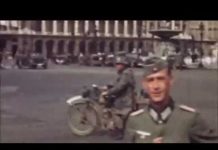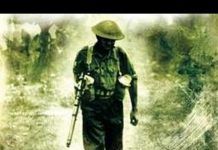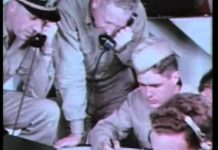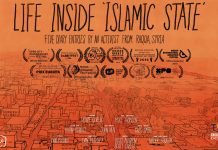The documentary “PKK and Their Leader: Syria” takes viewers on a gripping journey into the heart of one of the most complex and controversial conflicts of our time. Produced in 1998, this thought-provoking film delves into the clandestine world of the PKK (Kurdistan Workers’ Party) training camps that were once hosted in Syria. With exclusive access and a rare interview featuring the enigmatic PKK leader, Abdullah Ocalan, the documentary offers a compelling insight into the intricate dynamics of this enduring struggle.
At its core, “PKK and Their Leader: Syria” unravels the layers of an ongoing conflict that has deeply affected the lives of countless individuals and shaped the geopolitical landscape of the region. The film provides a unique opportunity to understand the training camps that operated in Syria, shedding light on their organization, purpose, and impact on the broader Kurdish struggle for self-determination.
Through a mix of interviews, footage, and expert analysis, the documentary presents a comprehensive examination of the PKK’s activities within Syria. It explores the motivations and aspirations that drove the Kurdish fighters to establish training camps in a neighboring country, highlighting the complex interplay between political ideologies, regional dynamics, and historical grievances.
Central to the narrative is the interview with Abdullah Ocalan, the enigmatic and controversial leader of the PKK. This rare and revealing encounter provides a glimpse into the mind of a figure who has long been the subject of fascination, controversy, and political debate. Ocalan’s perspectives, motivations, and vision for the Kurdish struggle are explored, offering viewers a unique opportunity to gain insight into the complexities of his leadership and the broader Kurdish movement.
“PKK and Their Leader: Syria” does not shy away from addressing the contentious aspects of the conflict. It acknowledges the violence, human rights abuses, and controversies associated with the PKK’s struggle for autonomy. Through nuanced storytelling, the documentary paints a complex portrait of the Kurdish fight for recognition, shedding light on the challenges faced by a marginalized group striving for self-determination.
Furthermore, the film delves into the geopolitical implications of the PKK’s activities in Syria, exploring the delicate balance of power in the region and the intricate relationships between various actors. It uncovers the influence of external forces and their role in shaping the trajectory of the conflict, highlighting the complexities of the Kurdish struggle within a broader context.
“PKK and Their Leader: Syria” offers viewers an opportunity to engage with the human stories behind the headlines, reminding us that conflicts are not just geopolitical chess games but deeply personal struggles with far-reaching consequences. Through its exploration of the training camps and the enigmatic figure of Abdullah Ocalan, the documentary encourages empathy, understanding, and critical reflection on the complexities of this enduring conflict.
As the credits roll, viewers are left with a deeper appreciation for the nuances and intricacies of the PKK’s presence in Syria. The documentary acts as a catalyst for dialogue and a call to action, urging individuals to engage with the complexities of the Kurdish struggle, challenge preconceptions, and advocate for peaceful resolutions to long-standing conflicts.
“PKK and Their Leader: Syria” stands as a poignant and thought-provoking documentary that humanizes the participants in a complex conflict. It invites viewers to look beyond simplistic narratives, encouraging a deeper understanding of the historical, cultural, and political dimensions at play. Through its exploration of the training camps and the charismatic leadership of Abdullah Ocalan, the film leaves a lasting impact, fostering empathy and a renewed commitment to seeking peaceful resolutions in the face of ongoing struggles.

































